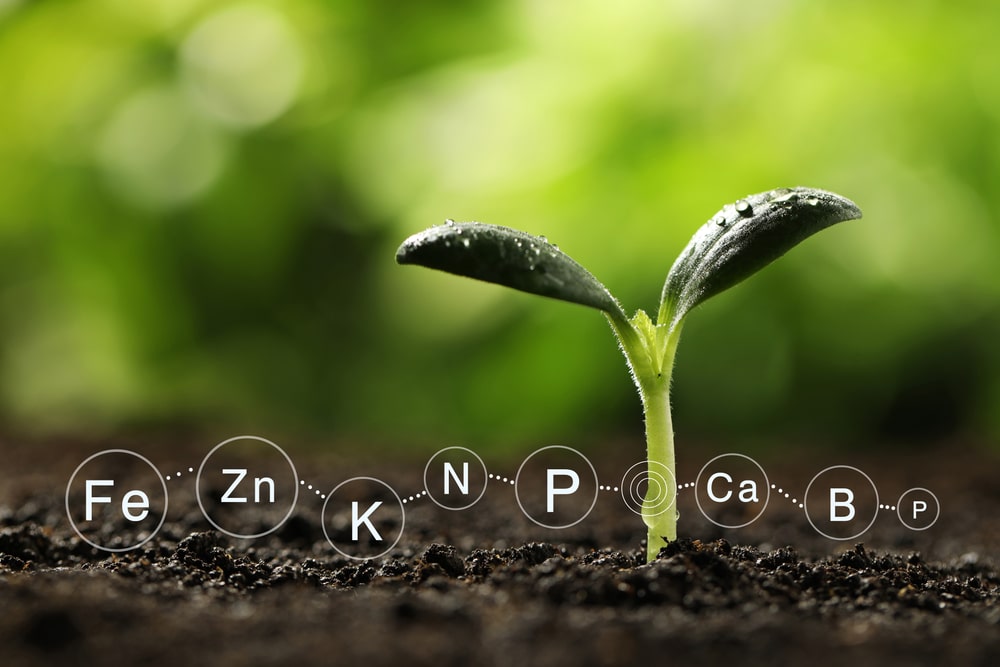
10 Must-Have Plant Nutrients for Musculoskeletal Health
Plant-based nutrients offer a natural and effective way to support musculoskeletal health, addressing common issues like inflammation, oxidative stress, and joint degradation. Many of these micronutrients are antioxidants, anti-inflammatories, or compounds that support tissue regeneration, providing essential benefits for bones, muscles, joints, and tendons. This article introduces thirteen must-have plant nutrients that contribute to musculoskeletal well-being. To lay a solid foundation, let’s do a quick refresh on the interplay between plant micronutrients, inflammation, and free radicals & oxidative stress.
Plant Micronutrients
Plant micronutrients are naturally occurring compounds found in plant-based foods that offer numerous health benefits. Present in fruits, vegetables, seeds, and herbs, these nutrients play key roles in musculoskeletal health. Though often found in small amounts, these micronutrients—such as antioxidants, polyphenols, and sulfur compounds—are powerful allies in reducing inflammation, combating free radicals, and enhancing bone, muscle, joint, and tendon health.
Inflammation
Chronic inflammation is a primary contributor to musculoskeletal conditions like arthritis, osteoporosis, and muscle degeneration. Inflammation is driven by immune responses and can cause tissue damage over time, leading to pain, stiffness, and reduced function. Plant micronutrients can help counteract chronic inflammation by blocking pathways that signal inflammation, reducing tissue damage, and supporting the body’s natural healing processes.
Free Radicals
Free radicals are unstable molecules that cause oxidative stress, accelerating tissue aging and cell damage. Musculoskeletal health is particularly vulnerable to oxidative damage, as free radicals can impair healthy fats, proteins, and DNA. Many plant micronutrients act as powerful antioxidants, neutralizing free radicals and reducing oxidative stress. This helps maintain healthy joints, bones, muscles, and tendons, ultimately improving resilience against age-related degeneration.
Each of these nutrients—ranging from bromelain, a protein-digesting enzyme, to sesamin, a lignan found in sesame seeds—possesses unique properties that help address common health issues. Whether it’s reducing inflammation, enhancing bone mineralization, or supporting mitochondrial function, these plant-derived compounds offer a variety of ways to improve musculoskeletal health and overall quality of life Let’s explore these 10 must-have plant nutrients and their incredible health benefits.
1. Bromelain
Bromelain is a mixture of enzymes extracted from pineapple, particularly its core and stem. It helps reduce inflammation by balancing immune responses and limiting excessive white blood cell activity, thereby supporting healthy muscles, tendons, and joints. Bromelain has also been shown to improve joint function, promote tendon healing, and alleviate muscle soreness.
2. Carotenoids
Carotenoids are colorful plant pigments found in fruits and vegetables. They are potent antioxidants that protect musculoskeletal tissue from oxidative damage and inflammation. Carotenoids like lutein and beta-cryptoxanthin support joint health, boost bone density, enhance muscle strength, and promote tendon health, making them valuable nutrients for musculoskeletal well-being.
3. Tea
Green and white teas are rich in antioxidants, especially polyphenols, which combat oxidative stress and inflammation. These teas have been shown to support joint, bone, muscle, and tendon health by neutralizing free radicals, reducing inflammation, and boosting bone mineral density. Consuming these teas can promote musculoskeletal health by aiding immune responses and preventing tissue damage. Also check out Top 3 Teas to Battle Chronic Pain.
4. Flavonoids
Flavonoids are a group of over 5,000 plant compounds known for their anti-inflammatory, antioxidant, and tissue-protecting properties. They help reduce inflammation, oxidative stress, and tissue breakdown while boosting cell regeneration. Flavonoids enhance joint, bone, and muscle health by mitigating processes that lead to tissue damage and promoting recovery.
5. Inulin
Inulin is a prebiotic fiber found in foods like chicory root and Jerusalem artichoke. It promotes gut health, which is linked to reduced chronic inflammation and improved musculoskeletal health. Inulin may also decrease obesity risk, enhance vitamin and mineral absorption, and mitigate age-related differences in gut bacteria that can contribute to joint disease.
6. Isothiocyanates
Isothiocyanates are sulfur-rich compounds found in cruciferous vegetables like broccoli and cabbage. They are potent antioxidants and anti-inflammatories that help reduce oxidative stress and inflammation, supporting joint, bone, and muscle health. Isothiocyanates also inhibit enzymes that damage musculoskeletal tissue, promoting overall tissue health.
7. Organo Sulfur
Organo sulfur compounds, found in allium vegetables (like garlic and onion) and cruciferous vegetables, provide significant musculoskeletal benefits. These compounds reduce inflammation and oxidative stress, support joint health, boost bone formation, and protect muscles from dysfunction. Proper preparation of these vegetables enhances their health-promoting properties.
8. Phytosterols
Phytosterols are plant compounds similar to cholesterol that help reduce inflammation and oxidative stress, supporting musculoskeletal health. They block cholesterol absorption and promote joint and bone health. Studies have shown that phytosterols can alleviate arthritis symptoms, reduce cartilage damage, and improve joint function.
9. Resveratrol
Resveratrol, a polyphenolic nutrient found in foods like red grapes, helps counteract oxidative stress, inflammation, and mitochondrial dysfunction—key contributors to musculoskeletal aging. It has been shown to reduce cartilage injury, support muscle health, promote tendon healing, and boost bone density, making it an effective nutrient for overall tissue health.
10. Sesamin
Sesamin, a lignan found in sesame seeds, is a potent antioxidant with multiple musculoskeletal benefits. It supports joint health by promoting the production of shock-absorbing proteins, boosts bone formation, protects muscle mitochondria, and enhances vitamin E activity. Sesamin’s antioxidant properties make it valuable for reducing oxidative stress and supporting musculoskeletal health.
Conclusion: Harnessing Nature for Musculoskeletal Health
Incorporating these 13 must-have plant nutrients into your diet can significantly impact your musculoskeletal health. From reducing inflammation and combating oxidative stress to boosting bone density and muscle function, these plant-based compounds offer a natural way to protect and enhance your body’s structural systems. By making small dietary changes—such as adding more cruciferous vegetables, sesame seeds, or tea—you can harness the power of nature to support lifelong joint, bone, muscle, and tendon health. Prioritizing these nutrients helps lay the foundation for resilience, mobility, and an active lifestyle well into the future.